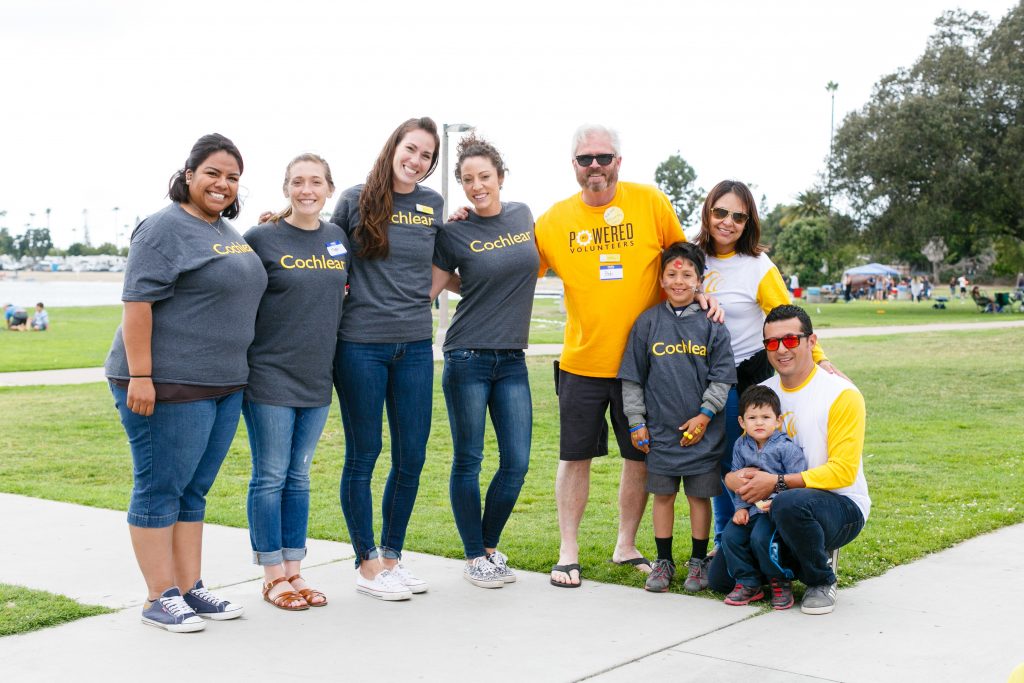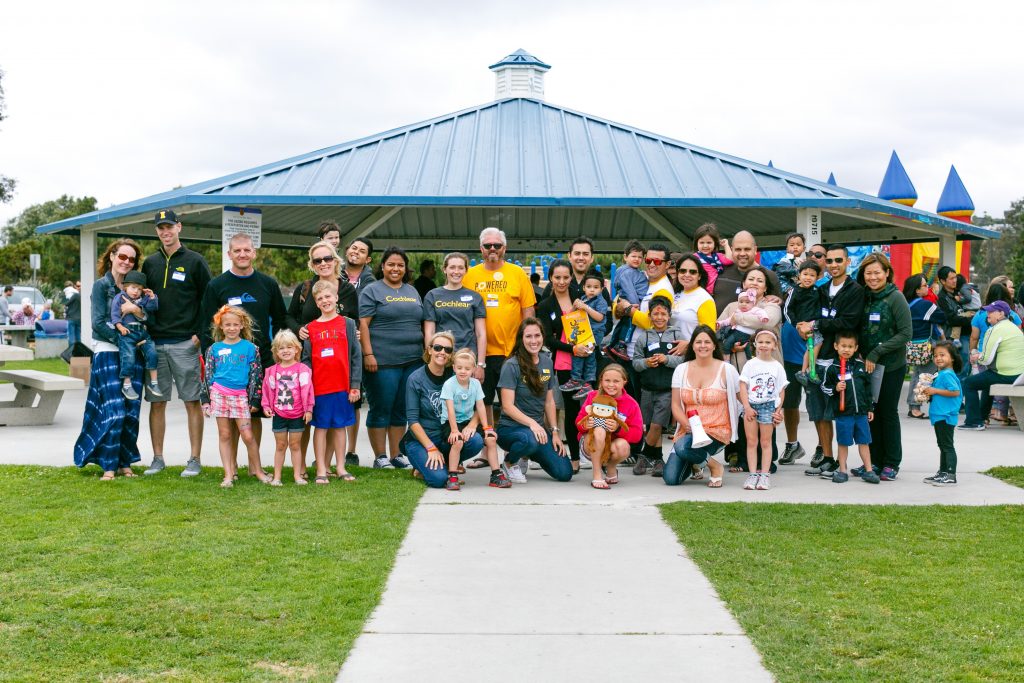 By Melissa Tumblin, Founder, Ear Community
By Melissa Tumblin, Founder, Ear Community
It is important for parents to understand how unilateral hearing loss (also known as single-sided deafness, SSD) can affect children from the moment they are born.
Having unilateral hearing loss is like having an invisible disability. While someone who is hard of hearing may be responding to you in a conversation, they may be missing out on hearing much of what you are saying to them. There can even be a slight delay in their response because of taking time to piece together what you just said to them. This is known as an auditory processing delay.
When one ear is not working, it is not only more difficult to hear, but the ability to determine where sound is coming from is also compromised. This is called sound localization. Not being able to localize where sound is coming from can be a safety issue, especially if a child is crossing a street with traffic and not hearing where the direction of cars are coming from.
Having two hearing ears allows us to hear background sounds, surrounding sounds, and determine where sound is coming from. However, always remember that when someone has a unilateral hearing loss, they are not hearing everything as well as someone who has two hearing ears.
Unilateral hearing loss can be challenging for young children while they are growing up. Higher and lower pitched sounds may not be heard. It may also be challenging to hear how to enunciate and pronounce words correctly when language and vocabulary skills are coming in during the critical years of development (birth to three).
Did you know that “30% of children with unilateral hearing loss may have to repeat a grade level by 3rd grade?”*
Unilateral hearing loss may also cause children to act out or be tired after getting home from school because they have been trying extra hard to hear in school all day.
 As a way of helping promote educational awareness about hearing loss for children born with Microtia and Atresia, the Ear Community Organization hosts events that bring families together helping inform them about their options for hearing devices.
As a way of helping promote educational awareness about hearing loss for children born with Microtia and Atresia, the Ear Community Organization hosts events that bring families together helping inform them about their options for hearing devices.
At Ear Community picnics, sponsored by Cochlear, families are given the opportunity to learn about the CochlearTM Baha® System and how children can benefit by being aided by the Baha, helping them hear better.
Here are some families at our 2016 San Diego Ear Community picnic who have chosen to aid their children as early as possible so that they can hear better. While every child may respond differently to their hearing loss, it is always important to know what helpful options are available.
Join Ear Community at the remaining Ear Community picnics for the 2016 season:
Kentucky Ear Community Picnic
Louisville, Kentucky
Date: Saturday, July 9th, 2016
Tennessee Ear Community Picnic
Nashville, Tennessee
Date: Saturday, July 16th, 2016
Canada Ear Community Picnic
Hamilton, Ontario Canada
Date: Saturday, July 23rd, 2016
Melissa Tumblin is the Founder of the Ear Community Organization and a parent advocate who believes in informing families of all of their options for hearing loss and the importance of aiding a child who has hearing loss with a hearing device as soon as possible.
For more information on bone conduction implants and the Baha System, including the new Baha 5 Power and Baha 5 SuperPower devices, click here.
* Bess et all (1998), Bess et al (1986) English and Church (1999) as demonstrated in a study on hearing loss.